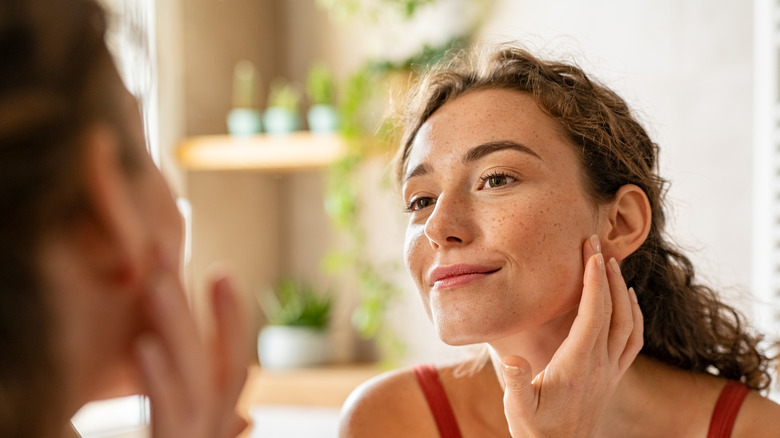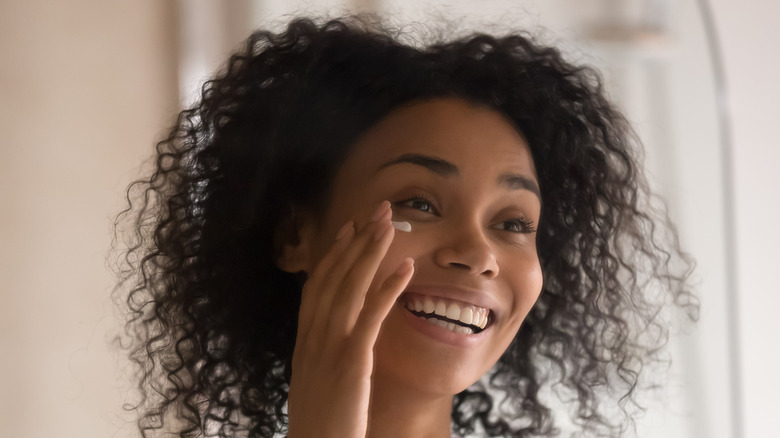The One Part Of Your Face You Should Never Use Retinol
Retinol is becoming an increasingly popular product for skincare, but can it be used everywhere?
Retinol is a type of retinoid, which is produced from vitamin A (via Medical News Today). Retinol and retinoids are available in both over-the-counter (OTC) and prescription forms, and they're used topically to slow the aging process. Retinol can penetrate the layers of the skin, deep into the dermis, where it increases cell turnover and prevents collagen from breaking down. This can help minimize signs of aging, treat acne, and generally improve the appearance of the skin.
When it comes to retinol versus retinoid, it can be hard to know what to choose. Retinol is the weakest form, available in OTC products, while retinoids are more potent and available with a prescription (via Healthline). It's recommended to apply a pea-sized amount to clean, dry skin at night, according to WebMD. Since retinol treats skin damage from the sun, it's also important to wear sunscreen during the day.
Can retinol be used everywhere?
Some skin on the face is thinner and drier than in other areas, making it more prone to signs of aging (via Well+Good). Under the eyes is one of those areas. While it used to be advised to completely avoid retinol around the eyes, new retinol products are being formulated with extra hydration, allowing the skin to tolerate it without as much irritation.
According to Healthline, our under-eye areas don't have oil glands, making them drier than the rest of our skin. When the skin is too dry, it can create cracks (wrinkles) that need hydration to plump up again. Applying a moisturizing eye cream can help reduce these signs of aging, and using one with retinol can help even more. Since retinol stimulates the production of collagen, this helps give the eye area a "plumped up" effect.
Retinol products specifically formulated for skin around the eyes may be more gentle than directly applying a prescription-strength retinoid. "These usually contain lower concentrations and are more hydrating than what you use on your face," Dr. Gretchen Frieling, a board-certified dermatopathologist, told Well+Good.


